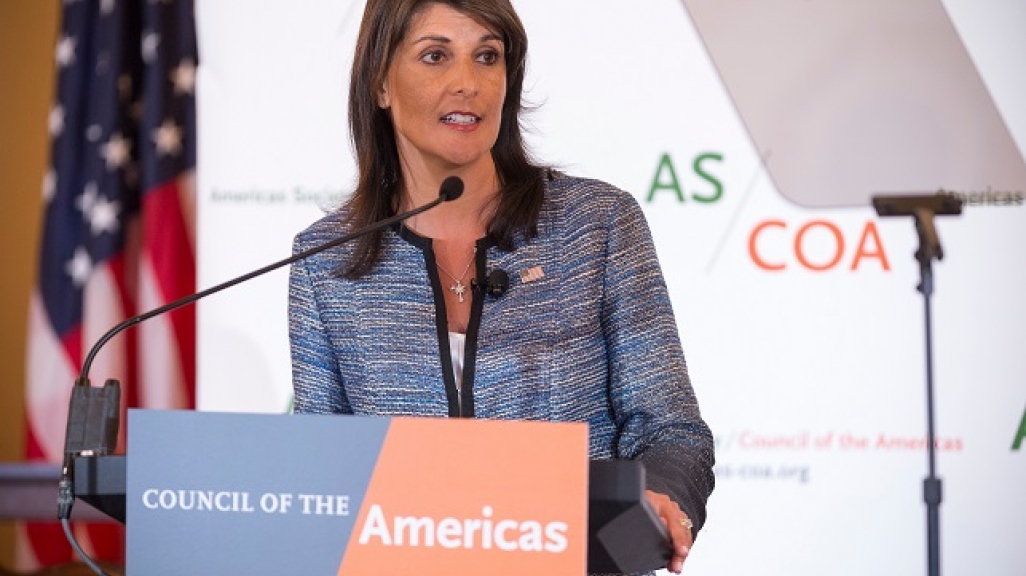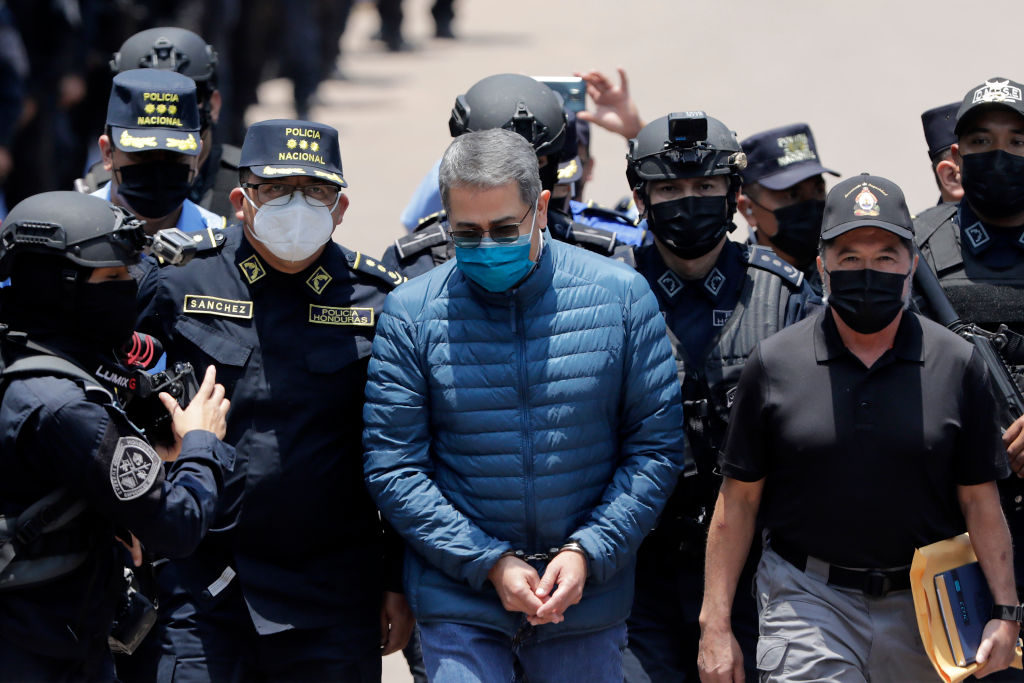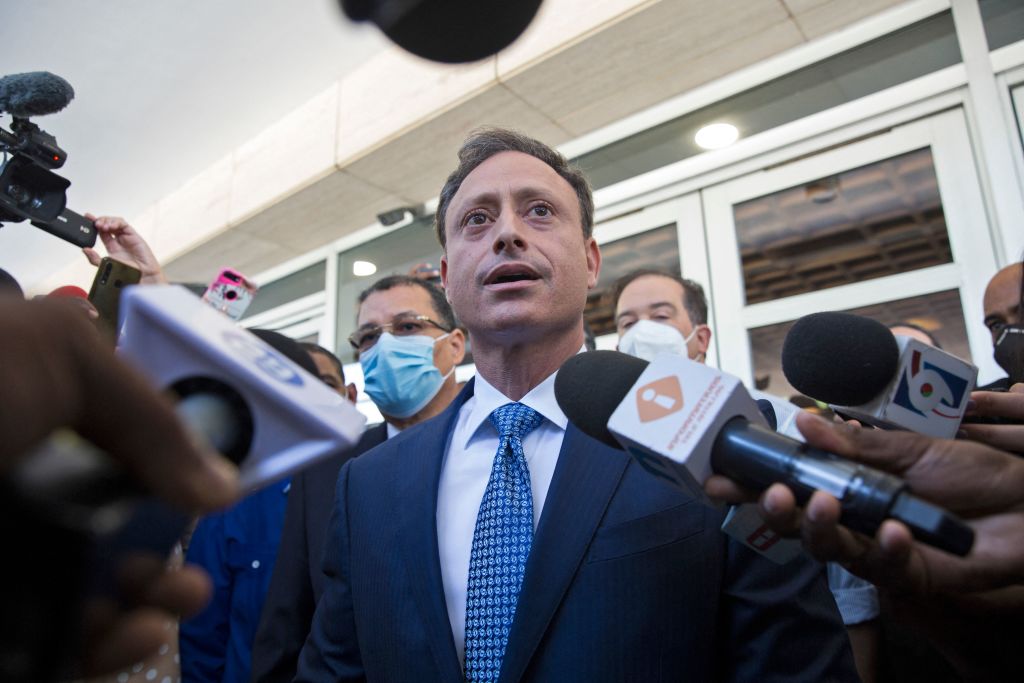48th Annual Washington Conference on the Americas: The New Agenda for Growth
48th Annual Washington Conference on the Americas: The New Agenda for Growth
The 48th Annual Washington Conference on the Americas hosted an array of distinguished leaders that spoke on the region's economic and political outlook.
Washington, D.C. May 10, 2018 — U.S. Ambassador to the UN Nikki Haley and U.S. Deputy Secretary of State John J. Sullivan sent a powerful message in defense of Latin America’s democratic order and condemned, in the strongest terms, the government of Venezuela’s Nicolás Maduro, during the 48th Annual Washington Conference on the Americas, co-organized Tuesday, May 8 by the Council of the Americas and the U.S. Department of State. The event gathered top U.S. and hemispheric officials as well as congressional leaders who discussed the region’s economic and political outlook, highlighted the strides made to confront systemic corruption, and assessed opportunities for hemispheric commercial and energy integration.
“Washington and the world must remain actively engaged with the region and continuously build constructive relationships as these changes unfold,” said AS/COA President and CEO Susan Segal, who opened the conference along with AS/COA Vice President Eric Farnsworth. AS/COA Chairman Emeritus John Negroponte introduced Ambassador Haley highlighting the role she has played as a champion of human rights. “She has been a leading voice for the administration on the issue, actively promoting democratic values around the globe from Venezuela to Syria to North Korea,” said Negroponte.
In remarks and during a moderated conversation, Ambassador Haley described the Venezuelan crisis as a threat to the security of the region and warned about the increased risks that stem from the Venezuelan humanitarian crisis. “As long as Maduro keeps the stores empty, the streets dangerous, and the government unaccountable, Venezuelans will not return home. And instability in the region will grow,” she said, calling for a continued regional effort to isolate the Maduro regime. “For the safety and security of all the peoples of Latin America, it is time for Maduro to go,” said the ambassador.
Deputy Secretary of State John J. Sullivan addressed the conference, emphasizing the need for Venezuela to return to the democratic constitutional order. “We join the democratic nations of the world in standing by the Venezuelan people as they seek the stable and prosperous democracy they deserve,” he said and announced the approval of an additional $18.5 million in bilateral assistance for the government of Colombia’s efforts to address the influx of Venezuelan refugees. The Deputy Secretary of State spoke at length about the threat that corruption poses to the stability of democratic institutions. “The United States will not stand for corrupt practices abroad that we would find unacceptable here at home,” he said to an audience of private sector members and public officials from across the region.
Additional top speakers at the conference included U.S. Secretary of Commerce Wilbur Ross; U.S. Secretary of Energy Rick Perry; U.S. Senator and Ranking Member of the Senate Foreign Relations Committee Bob Menendez; and Chairman of the U.S. Senate Foreign Relations Committee’s subcommittee on the Western Hemisphere Marco Rubio, among others.
“Collectively, we can build the most open and transparent commercial environment in the world,” said Secretary Wilbur Ross. “From a hemispheric perspective, we must work together to build economies based on high value-added goods and services. These higher value-added products provide better-paying jobs, and are more beneficial to local economies.”
In turn, U.S. Secretary of Energy Rick Perry delivered remarks stressing that there should not have to be a tradeoff between environmental protection and economic development. “When nations embrace innovation over regulation, they can do both economic growth and environmental protection,” he said.
In his remarks, Senator Bob Menendez cautioned about the consequences of weak governance systems and announced he will introduce comprehensive legislation in the coming weeks to expand the U.S. response to the humanitarian and refugee crisis in Venezuela. “The rule of law in Latin America matters first and foremost because it ensures elected governments are accountable to their citizens,” he said. “Good democratic governance fosters economic growth by encouraging a positive business climate—one that respects property rights, enforces contracts, curbs government malfeasance, prevents corruption and promotes citizen security. Simply put: good governance is good for business.”
After an introduction by AS/COA Chairman Andrés Gluski, Senator Marco Rubio remarked on the importance of protecting the democratic order in the hemisphere, as well as continuing to fight organized transnational crime. On the Venezuelan crisis, Senator Rubio applauded what he described as an unprecedented regional response and described what further steps might be helpful. “We should, number one, be focused on humanitarian assistance, and not just to those who fled Venezuela but we should also try to open channels in Venezuela,” he said. “We need to begin thinking about helping rebuild Venezuela. I called it a sort-of Marshall Plan for Venezuela.”
Other speakers at the 48th Washington Conference on the Americas included U.S. Senator Benjamin Sasse; U.S. Treasury Undersecretary for International Affairs David Malpass; U.S. Agriculture Undersecretary of Trade and Foreign Agricultural Affairs Ted McKinney; U.S. Acting Assistant Secretary of State for Western Hemisphere Affairs Francisco Palmieri; Brazilian Ministry of Finance Secretary for International Affairs Marcello Estevão; and International Finance Corporation Chief Executive Officer Philippe Le Houérou.
For more information, please contact AS/COA Media Relations at mediarelations@as-coa.org or +1 212 277-8384 or +1 212-277-8333.
To get conference materials, summaries, multimedia, and more, visit: www.as-coa.org/2018wca.
Council of the Americas is the premier international business organization whose members share a common commitment to economic and social development, open markets, the rule of law, and democracy throughout the Western Hemisphere. The Council’s membership consists of leading international companies representing a broad spectrum of sectors, including banking and finance, consulting services, consumer products, energy and mining, manufacturing, media, technology, and transportation.








